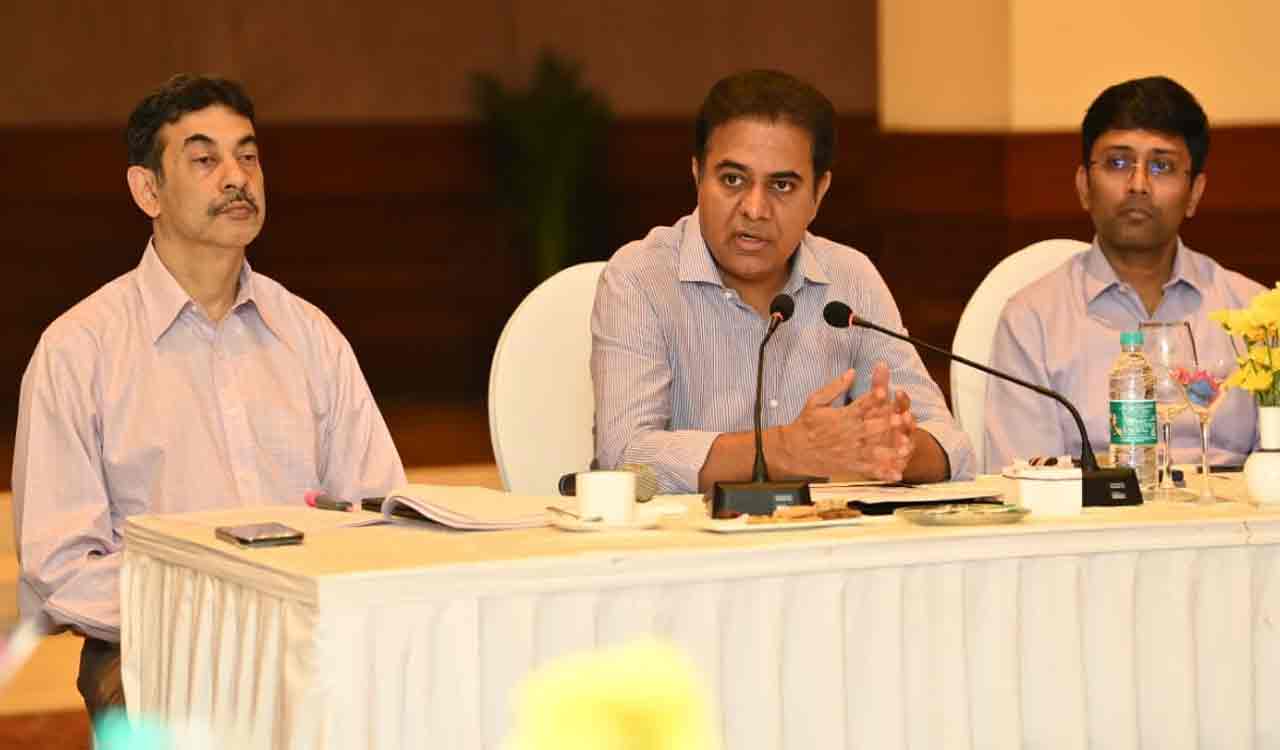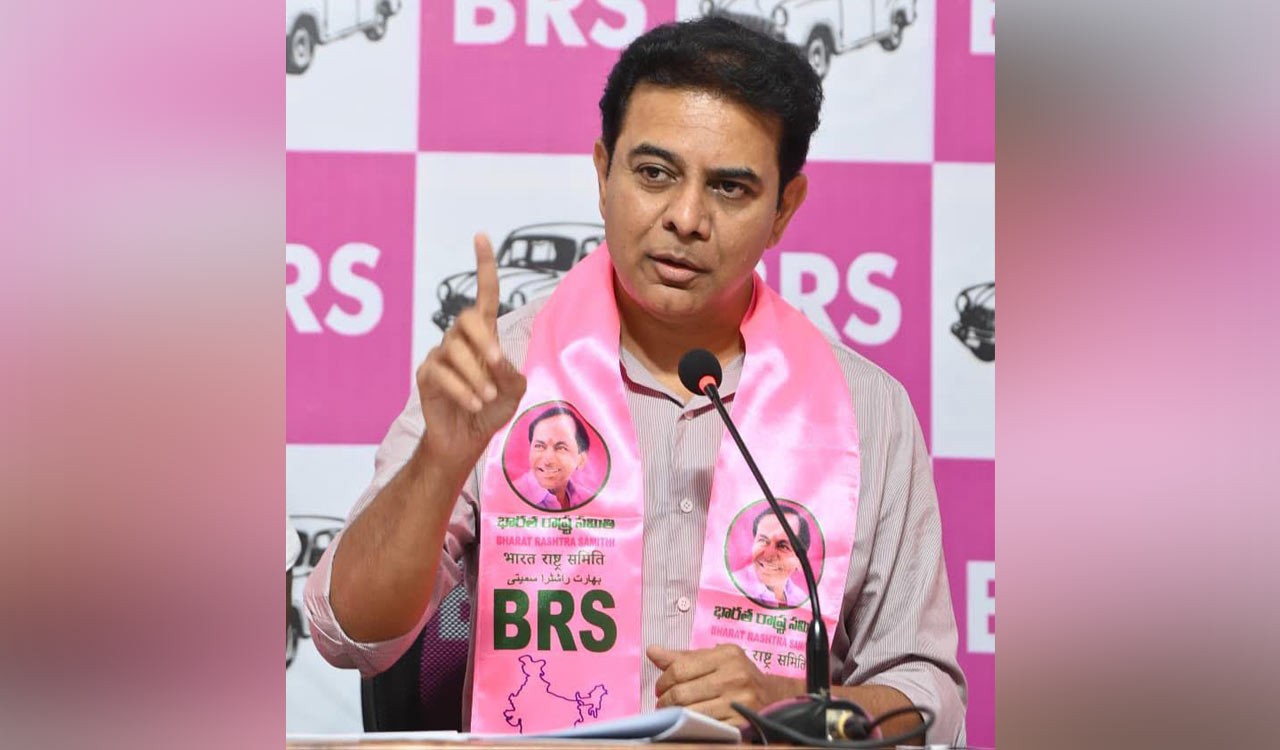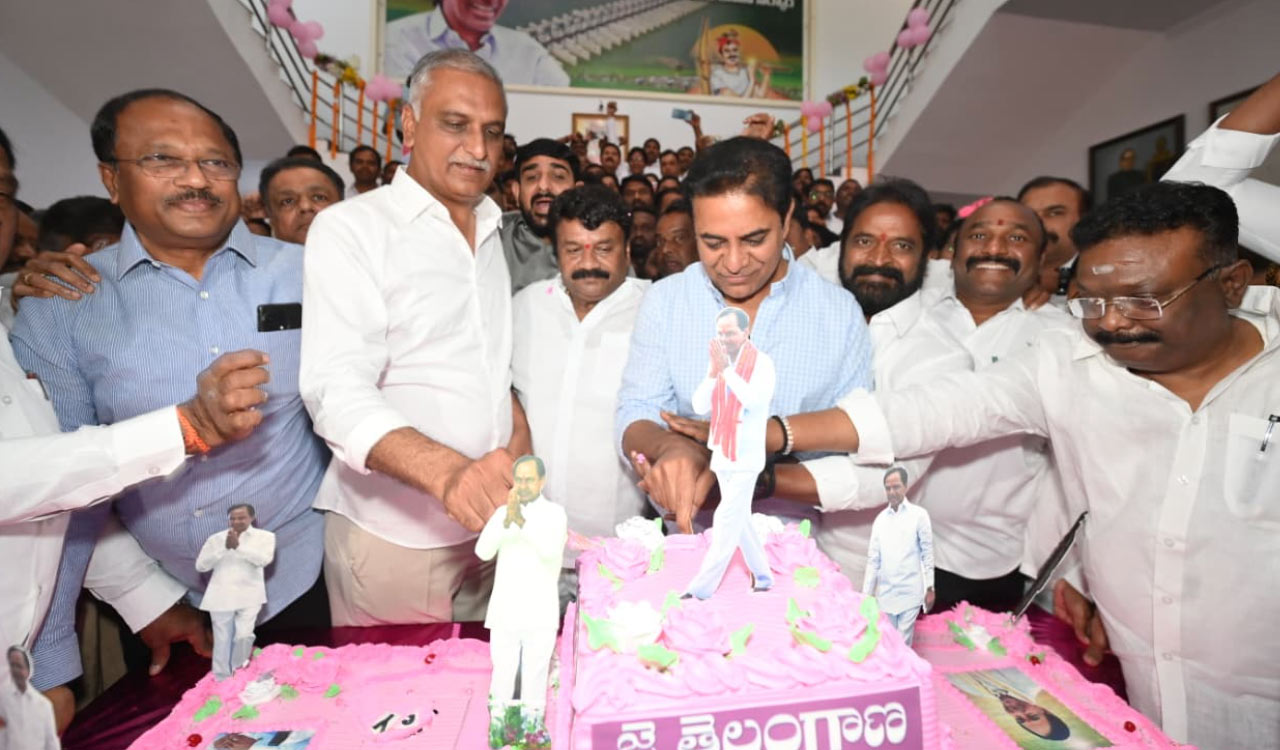Telangana rising in life sciences, to double value to $100 billion
IT and Industries Minister KT Rama Rao said efforts were also underway to double the size of the life sciences sector in the State from the current $50 billion to $100 billion in size in five years.

Hyderabad: IT and Industries Minister KT Rama Rao said Hyderabad would soon turn into a pharma manufacturing hub of international importance with the Pharma City, the world’s largest integrated pharma manufacturing cluster, nearing completion. Efforts were also underway to double the size of the life sciences sector in the State from the current $ 50 billion to $ 100 billion in size in five years.
There were about four lakh people working in the life sciences and allied sectors and this would also double to 8,00,000 in the coming five years in Telangana. “We will play to our strengths, consolidate our current position and aim for growth in new areas. We have many research, contract research and manufacturing firms here in the State. In an encouraging sign, companies are ready to expand further,” he said.
Also Read
Interacting with the media ahead of the the 20th edition of industry event BioAsia here on Tuesday, the Minister said the Genome Valley would see an additional 20 lakh sqft real estate space getting added. Already, about 30 lakh sq ft was built and was being used. Currently, about nine billion doses of vaccines were being made in Telangana. This is about 35 per cent of the total vaccines made in the world. Next year, the number of doses would increase to 14 billion doses or about 50 per cent of the vaccines made globally, he said, adding that vaccines made in Telangana were exported to about 100 countries.
Telangana also accounted for more than one-third of pharma exports from the country. The medical devices cluster at Sultanpur, which was home to Asia’s largest stent making facility, had evoked good response and hardly had any space vacant, he said.
No support from Centre
Stating that the State’s IT and health and life sciences sectors had grown due to the presence of a nurturing ecosystem and a progressive government in Telangana, Rama Rao however said a similarly proactive government at the Centre would have made things much better.
Even though the Centre talked of cooperative federalism and Team India, the same was not reflected in its actions. An ITIR project given to the State was cancelled. If it were allowed, it would have helped Telangana with more opportunities in the IT sector. The Centre also ignored Telangana’s pleas for a bulk drugs park, despite having a large supporting ecosystem present here. Telangana is home to 214 US FDA facilities, the largest in a single province. Next in line is New Jersey with 189 USFDA units. Despite having so many US regulator approved pharma units, the Centre did not give Telangana a bulk drugs manufacturing park, he said, highlighting the selective bias towards other States.
A plea to set up a defence and aerospace cluster between Hyderabad and Bengaluru too was not allowed. A defence manufacturing corridor would have benefitted Telangana, Andhra Pradesh and Karnataka, he said, adding that the Centre instead chose to announce the corridor in a place that did not have manpower and other resources. “Telangana still has continued to grow and will continue to grow further. If the Centre also supported, the growth would happen a bit faster,” he said.
On Pharma City, Rama Rao said the State was awaiting court orders on certain matters. So far, no company was allotted land in the project though about 14,000 acres have been acquired for the project, he said.
The Centre was setting up many educational institutions across the country, but not one institute of eminence was allotted to Telangana, Rama Rao said, pointing out that Telangana was but setting up one medical college in each district on its own. The medical college coming up in Ranga Reddy would try to leverage the Pharma City.
“So, it will have a hospital, a nursing school, pharma research and manufacturing. Likewise, the medical college coming up in Sircilla will focus on oncology,” he said, also stating that Telangana had started a pilot on creating health profiles for citizens. The multi-department effort would aim to provide patient information to the medical fraternity through digital channels. This would save time in the golden hour and aid in saving lives. “The idea is to replicate the pilot across the State,” he said, adding that smart cards would be issued to all. Patient privacy would be of priority, he assued, also remarking that research pointed to precision medicine emerging as the next frontier.
Related News
-
Dube, Chakravarthy power India to win over Netherlands
2 mins ago -
Praful Patel backs demand for CBI probe into Ajit Pawar plane crash
16 mins ago -
Editorial: India-France tango uplifts the mood
42 mins ago -
D K Shivakumar tells Karnataka contractors govt will pay as per budget
58 mins ago -
Opinion: MLA is not a Public Servant — justice lost in interpretation
1 hour ago -
Is it a crime to win majority of wards, Suman asks Vivek before arrest
1 hour ago -
Deer killed in road accident in Kothagudem
2 hours ago -
Speaker concludes hearing on disqualification petition against Danam Nagender
2 hours ago




